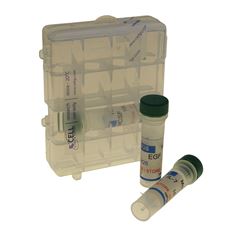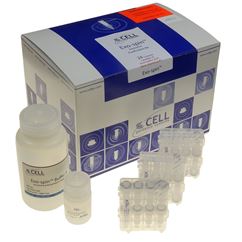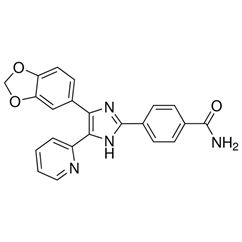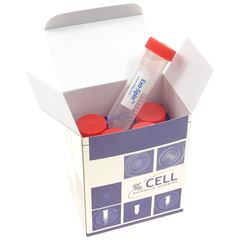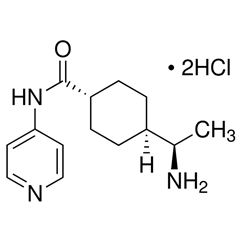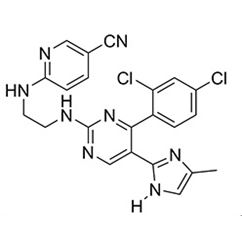Recombinant Rat TNF-α
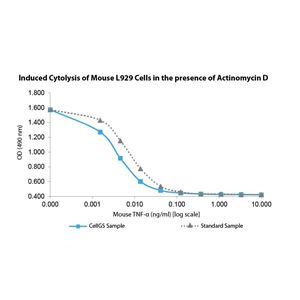
Cytolysis of mouse L929 cells in the presence of Actinomycin D for Rat TNF-α. Cell viability was measured to calculate the ED50, which is as expected less than 50 pg/ml.
Achieve Purchasing Synergy
Request a quote at [email protected] for 2 or more vials of any Growth Factor to receive a discount. Discounts range from 5 to 20% according to the size of your order.
PODS® Growth Factors
The product is currently not available as PODS®, please check back in the future.Description
Tumor Necrosis Factor α (TNF-α) is an inflammatory cytokine secreted by macrophages, monocytes, neutrophils, T cells, and Natural Killer (NK) cells following stimulation by bacterial lipopolysaccharide (LPS). TNF-α signal activation occurs through two receptors, TNFR1 and TNFR2. TNFR1 is expressed on most cell types, unlike TNFR2, which is expressed mainly on immune cells. TNF-α functions to stimulate phagocytosis in macrophages, chemoattract neutrophils, increase insulin resistance, and induce fever.Activity Assay
Rat TNF-α (Animal-Free) is fully biologically active when compared to standard. The activity is determined by the cytolysis of mouse L929 cells in the presence of Actinomycin D and it is typically less than 50 pg/ml. This corresponds to an expected specific activity of 2.0 x 107 units/mg.AA Sequence
MVRSSSRTPS DKPVAHVVAN PQAEGQLQWL NRRANALLAN GVELRDNQLV VPSEGLYLIY SQVLFKGQGC PSTHVLLTHT ISRIAVSYQT KVNLLSAIKS PCQRETPEGA EAKPWYEPIY LGGVFQLEKG DRLSAEINRP DYLDFAESGQ VYFGIIALAlternative Names
Tumor Necrosis Factor α, TNFa, TNFα, TNFSF2, cachectin, DIF, necrosin, cytotoxin, cachexin, TNF| Product Details | |
|---|---|
| Length | 158 aa |
| Molecular Weight | 17.5 kDa |
| Structure | Monomer |
| Source | E. coli |
| Accession Number | P01375 |
| Purity | ≥95% determined by reducing and non-reducing SDS-PAGE |
| Endotoxin Level | ≤1.00 EU/μg as measured by kinetic LAL |
| Formulation | Lyophilized from a sterile (0.2 micron) filtered aqueous solution containing 10 mM sodium phosphate, pH 7.5 |
| Reconstitution | Centrifuge vial before opening. When reconstituting the product, gently pipet and wash down the sides of the vial to ensure full recovery of the protein into solution. It is recommended to reconstitute the lyophilized product with sterile water at 0.1 mg/ml, which can be further diluted into other aqueous solutions. |
| Stability and Storage |
12 months from date of receipt when stored at -20°C to -80°C as supplied. 1 month when stored at 4°C after reconstituting as directed. Avoid freeze-thaw cycles |

